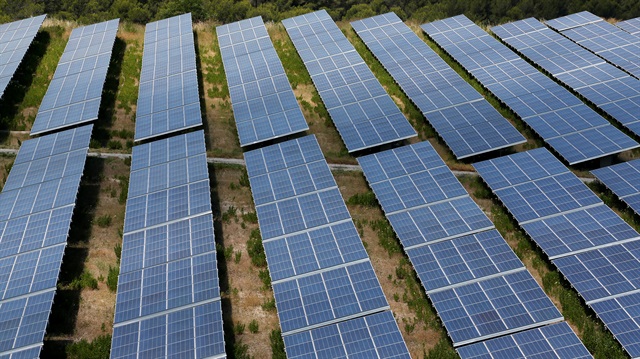
In the West Bank, ruled by President Mahmoud Abbas’s Western-backed Palestinian Authority, the public and private sectors have launched projects to diversify power sources to get cheaper electricity and more self-sufficiency.
"The government is in dire need of individual initiatives and investments to provide power so that it can become independent of the occupation (Israel), step by step," Shifa' Abu Sa'adi, head of natural resources at the Palestinian economy ministry, told Reuters.
The Authority’s Palestinian Investment Fund (PIF) plans to build three solar farms and put solar energy into 500 schools. The three new plants will generate 22 megawatts per day. The West Bank needs 1,400 megawatts but currently only 1,100 megawatts are available.
Larger solar projects would require more land but it is scarce because, under the Oslo peace accords of the mid-1990s, Israel retains control of much of the land of the West Bank.
"We will be in a good position if we reach 5 or 10 per cent of the required electricity supply for Palestine in general from solar energy," said Azem Bishara, chief executive officer of Massader, a subsidiary of the PIF.
Bishara said Massader intended to invest $200 million in renewable energy over the next six years to generate an additional 200 megawatts.
The Gaza Strip only has one power plant, which generated 140 megawatts in 1999 when it was built but now only produces 23 megawatts. The enclave imports 30 megawatts from Egypt and 120 from Israel. This is less than a third of the Strip’s daily needs - estimated at up to 600 megawatts a day.
Last week the European Union completed Gaza's biggest solar farm which will provide 0.5 megawatts per day to fuel the Southern Gaza Desalination Plant, also funded by the EU.
U.N. Deputy Special Coordinator for Middle East Peace Process Jamie McGoldrick this week urged Israel to allow U.N.-purchased emergency fuel needed for backup generators at vital health, water and sanitation operations.
"The well-being of 2 million people, half of whom are children, is at stake. It is unacceptable that Palestinians in Gaza are repeatedly deprived of the most basic elements of a dignified life," McGoldrick said.



















